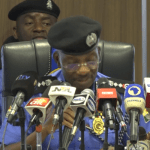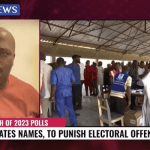The Presidential Election Petition Court, PEPC, sitting at the Court of Appeal in Abuja, on Wednesday, awarded the Independent National Electoral Commission, INEC, the clearance to reconfigure the Bimodal Voter Accreditation System, BVAS, it utilised for the presidential election.
A three-member panel of justices ruled unanimously that preventing the electoral authority from redesigning the BVAS would have a negative impact on Saturday’s elections for governor and state parliament.

It disregarded the concerns the Labour Party, LP, and Mr. Peter Obi, the party’s presidential candidate, had about INEC’s decision to reorganize all of the BVAS.
According to the court, allowing the objections by Obi and his party, would amount to “tying the hands of the respondent, INEC.”
Additionally, it mentioned that INEC had stated in an affidavit it submitted to the court that the accreditation data contained in the BVAS would be kept and easily retrievable from its authorized back-end server, guaranteeing that they could not be altered or destroyed.
It further pointed out that neither Obi nor LP had refuted the statements made in INEC’s affidavit, highlighting the fact that the applicants had effectively admitted the statements as they had not been refuted.
However, the court directed INEC to provide the petitioners with the Certified True Copy, CTC, of the outcomes of the physical inspection of the BVAS, as well as to let them to inspect and undertake digital forensic examination of all electoral materials used in the conduct of the elections.
Speaking on TVCBreakfast, Political Analyst, Darlington Umoru said one of the beauty of democracy is about being able to challenge election results if you are unsatisfied with the conduct, you can go to court to seek redress.
He stated that the Labour Party and the Peoples Democratic Party had expressed a lot of dissatisfaction over the issue.
Mr Umoru said INEC is currently nursing fears of a possible extension of the governorship and house of assembly polls if the reconfiguration of BVAS is delayed.
“Reconfiguring the BVAS machine is not going to be a day’s job because these are machines that were used in the Presidential election which will be used in this coming election.
“The parties are saying they don’t want that as the information in the machines could be altered. In the same vein, INEC is also not very comfortable with the prayer granted the political parties by the tribunal allowing them to access the BVAS machines”.
He added that this is a function of democracy, everyone should be allowed to do what they want but the Court has the final say.
Beyond the other two parties asking to be allowed to inspect these materials, the APC is also going to court to demand that it should be allowed to inspect the same materials.
Mr Umoru said the country has not had situations aside the June 12 elections where other opposition parties have not gone to court to challenge the decision of the electoral umpire.
He stated that Nigeria’s political system should evolve to the point where we can begin to see a way of appreciating our electoral results.
“There is so much doubt, INEC is being challenged as to why a lot of things happened forgetting that what we are talking about are machines which have tendencies to malfunction.”













